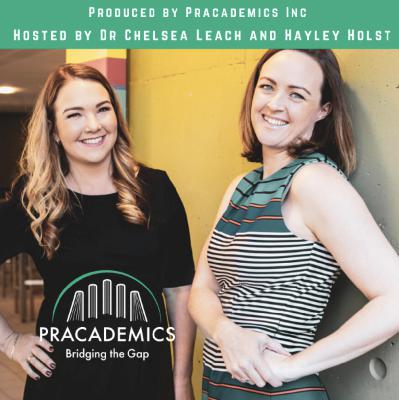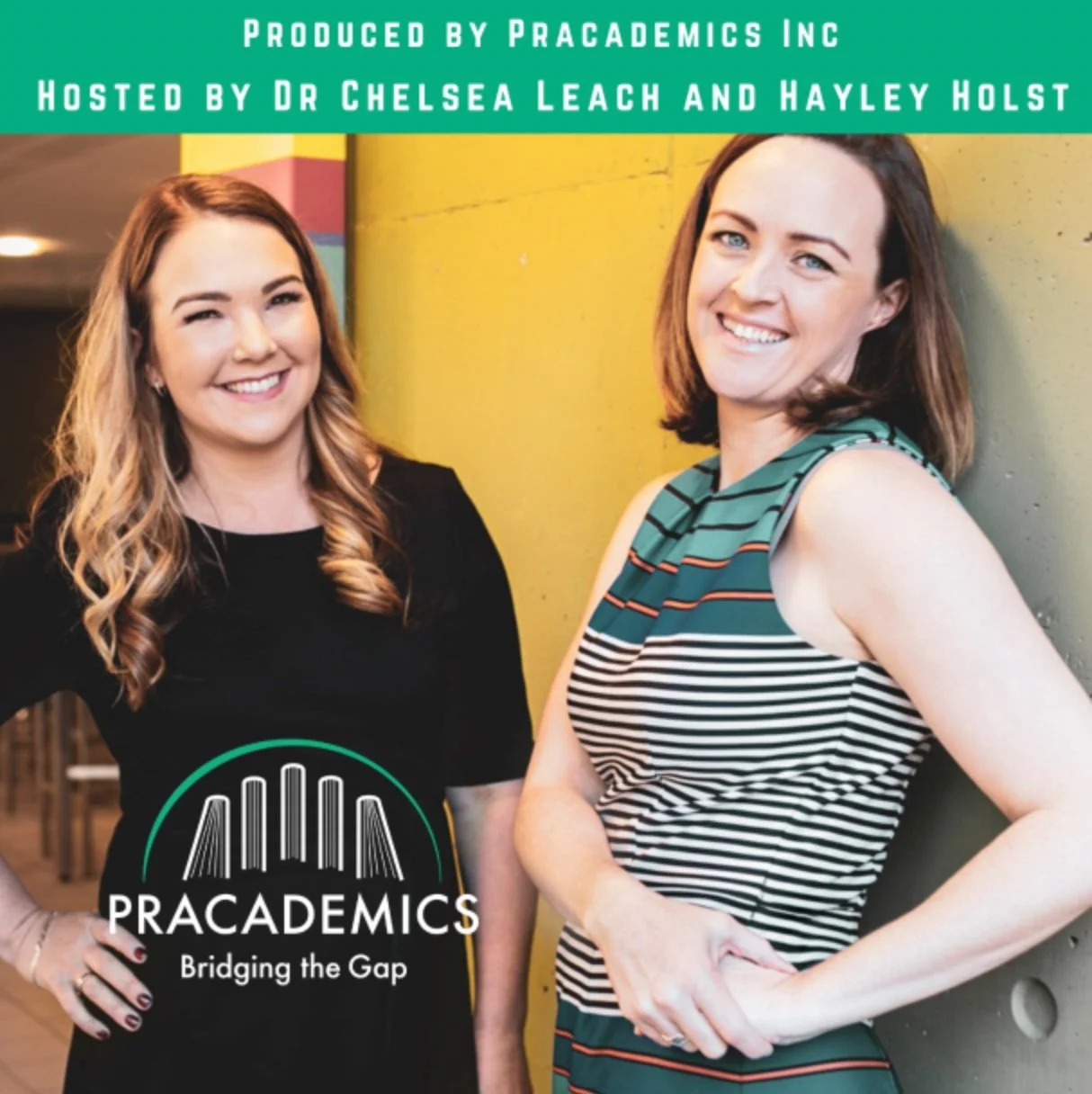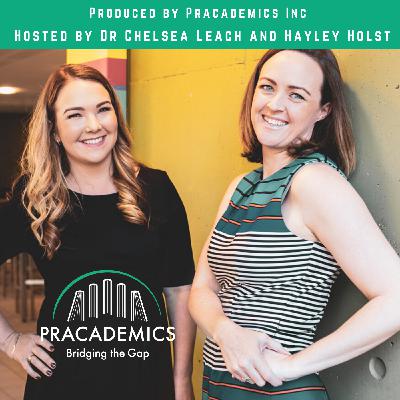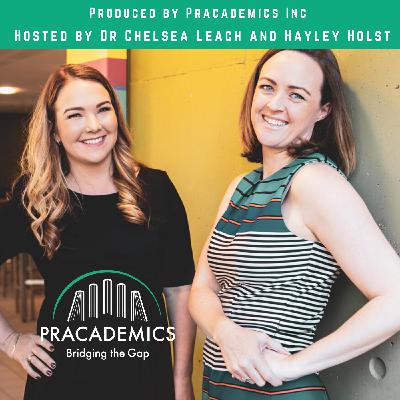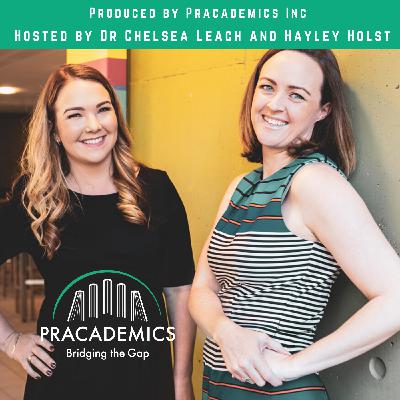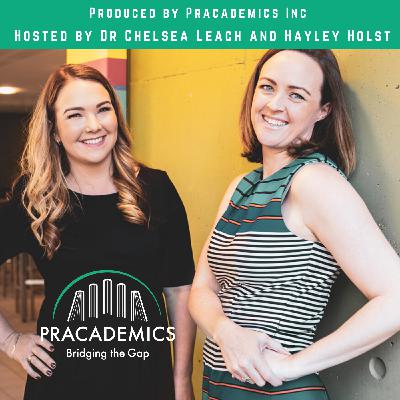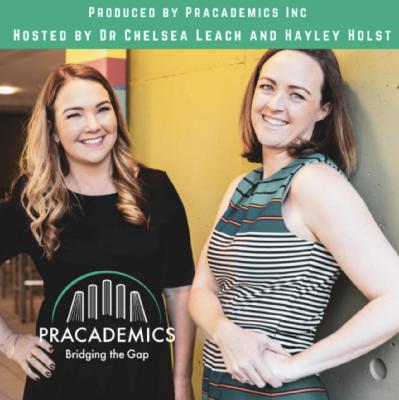Discover Pracademics Inc
Pracademics Inc

Pracademics Inc
Author: Pracademics Inc
Subscribed: 2Played: 14Subscribe
Share
© All work is copyright of Pracademics Inc
Description
Be informed, connected and inspired when we translate research from the academic world into the real world, to help you with your work with children, young people and families.
10 Episodes
Reverse
In the new episode of the Pracademics Podcast, I continue the interview with my colleague, Clinical Psychologist and PhD in Neuroscience - Dr Catherine Hynes.Catherine shares with us her experience of working with ambivalence and part work models, as well as explains why it is crucial to know those details to provide a proper treatment for our clients. She also gives advice on how to bring every part of a person to the therapy room.Join our Pracademics podcast to listen to Dr Hynes and find out more about the above-mentioned topics.Our website: http://pracademics.com.au/3 easy ways to improve safety and stabilisation for clients with complex trauma:https://mailchi.mp/704ee30f1bfb/improve-stabilisation Our Instagram page:https://www.instagram.com/pracademics/
In our newest episode of the Pracademics Podcast, I invited my colleague Dr Catherine Hynes to discuss some topics.In this part, she eliminates confusion around the term of dissociation and explains what it is in fact.She also talks about the concept of structural dissociation in general and provides some guidance on how to work with this model in the most effective way.Join our Pracademics podcast to learn more details about it and many other interesting or controversial topics.Our website: http://pracademics.com.au/ 3 easy ways to improve safety and stabilisation for people with complex traumahttps://mailchi.mp/704ee30f1bfb/improve-stabilisation Our Instagram page:https://www.instagram.com/pracademics/
The COM-B model is an incredibly useful tool that I like and never hesitate to utilise in my life and work. It has helped me to reflect on my own behaviour, to understand what might be going wrong for the people that I work with, and also to enact change in practice. Whether you are a trainer or a manager - you need to know about this model.
The neurobiology of trauma is fascinating, but reading the research can make your head spin. In this episode we provide an easy to understand summary of everything you need to know about the neurobiological impact of trauma and discuss how it might apply to the children, young people and families you work with.
The Adverse Childhood Experiences study highlighted that childhood trauma contributes to health outcomes long into adulthood. This study reframed childhood maltreatment as a public health issue, but there is a risk that this questionnaire will be misused in practice. Assessing the ACEs score of children in schools, child protection or custody is extremely questionable and in this episode we outline our concerns about the misapplication of ACEs. Consider this episode - reverse implementation! A lesson when research SHOULD NOT be applied in practice!
In this episode, we help you feel inspired by sharing a good news story about improving educational outcomes for young people in care.
In this episode, we keep you informed by exploring an article by Bryce (2018), where she discusses child protection responses to cumulative harm. Bryce identifies that current child protection legislation in Australia is not adequate for responding to cumulative harm due to the focus on immediate harm caused by the abuse, rather than the long term impact which may not manifest for several years. Therefore Bryce argues there should be more of a child protection focus on family need and child well-being, rather than purely on the immediate risk to the child.
The challenges of working with complex trauma.In this episode of our Pracademics Podcast, I am interviewing Dr Catherine Hynes - Clinical Psychologist and PhD in Neuroscience. We talk about why people get stuck in the stabilisation phase and what challenges we face as therapists in our work with trauma. To top that off, Catherine explains how to deal with them.Join our Pracademics podcast to listen to Dr Hynes and find out more about the above-mentioned topics.Download our free guide - 3 Easy Ways to Improve Safety and Stabilisation Skills for Complex Traumahttps://mailchi.mp/704ee30f1bfb/improve-stabilisation Our Instagram page:https://www.instagram.com/pracademics/
In this episode Dr Catherine Hynes discusses when your client is ready to process their trauma. She tells us when we can actually start the trauma processing and the importance of being able to emotionally regulate following triggers.
The explosion of acronyms for therapy makes me feel overwhelmed. In this episode, I’m speaking about the flaws of alphabet therapies and how to overcome them. I’m also talk about how this relates to the model of structural dissociation that we have been exploring with Dr Catherine Hynes this season. The good news is, alphabet therapies can be very effective for clients with complex trauma - but you need know how best to utilise them.


